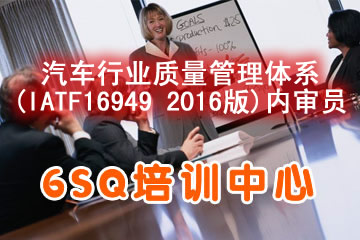经典的Deming十四条
好像没有人贴过完整板。
非常经典。
If we use the words Total Quality Management(TQM) to refer to a specific package of quality measures rather than using them in their wider sense, then the name to which they are sometimes attributed is that of Deming. Deming has laid down a 14-point plan for the achievement of TQM.
Point 1: Create constancy of purpose toward improvement of the product and service so as to become competitive, stay in business and provide jobs.
One management concern must be to deal with running the business on a day-to-day basis and the other must be to look after the future of the business. The latter requires constancy of purpose and dedication to improvement. Top management must spend time to innovate, put resources into research and education, constantly improve the design of the product and service, and put resources into maintenance of equipment, furniture and fixtures.
In this point Deming is thus condemning ‘short-termism‘.
Point 2: Adopt the new philosophy. We are in a new economic age. We no longer need live with commonly accepted levels of delay, mistake, defective material and defective workmanship.
Deming‘s new philosophy is simple. The levels of error that could be tolerated yesterday cannot be tolerated today. Deming stresses that only management is in the position to do something about the vast majority of errors and it is management‘s task to remove the obstacles that prevent the worker from doing the job correctly.
Point 3: Cease dependence on mass inspection; require, instead, statistical evidence that quality is built in.
The problem with mass inspection is that it is an attempt to control the product rather than the process, and in any case, mass inspection is frequently subject to high levels of inaccuracy. In short, it is too late, ineffective and costly.
非常经典。
If we use the words Total Quality Management(TQM) to refer to a specific package of quality measures rather than using them in their wider sense, then the name to which they are sometimes attributed is that of Deming. Deming has laid down a 14-point plan for the achievement of TQM.
Point 1: Create constancy of purpose toward improvement of the product and service so as to become competitive, stay in business and provide jobs.
One management concern must be to deal with running the business on a day-to-day basis and the other must be to look after the future of the business. The latter requires constancy of purpose and dedication to improvement. Top management must spend time to innovate, put resources into research and education, constantly improve the design of the product and service, and put resources into maintenance of equipment, furniture and fixtures.
In this point Deming is thus condemning ‘short-termism‘.
Point 2: Adopt the new philosophy. We are in a new economic age. We no longer need live with commonly accepted levels of delay, mistake, defective material and defective workmanship.
Deming‘s new philosophy is simple. The levels of error that could be tolerated yesterday cannot be tolerated today. Deming stresses that only management is in the position to do something about the vast majority of errors and it is management‘s task to remove the obstacles that prevent the worker from doing the job correctly.
Point 3: Cease dependence on mass inspection; require, instead, statistical evidence that quality is built in.
The problem with mass inspection is that it is an attempt to control the product rather than the process, and in any case, mass inspection is frequently subject to high levels of inaccuracy. In short, it is too late, ineffective and costly.
没有找到相关结果
已邀请:





6 个回复
tclwanghb (威望:0) - -
赞同来自: